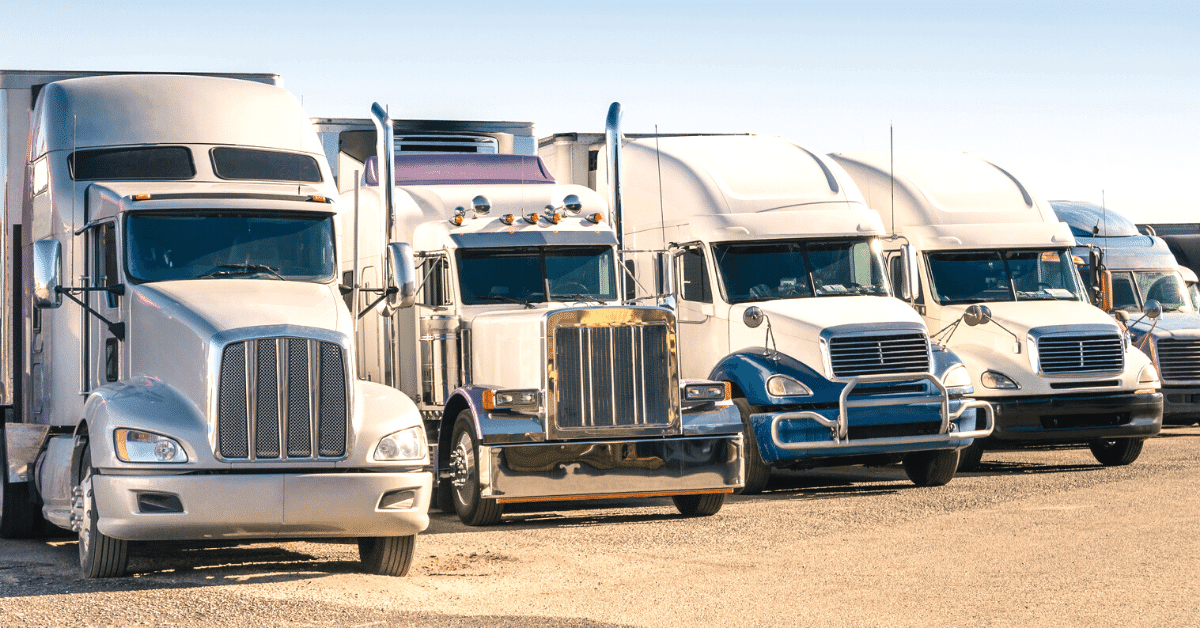
The Different Types of Truck Driving Jobs

“When I grow up, I wanna be a trucker.” That’s what was on my little trucker hat when I was in elementary school. I envisioned driving a big ole’ Kenworth or Peterbilt with a shiny trailer to match. My friends and I used to ride around on our bicycles and pretend we were transports, and if we parked too close to a wall, suddenly we were driving cab-overs and we had loads of extra space.
Little did I know that years later I’d actually be driving a new Peterbilt with a trailer to match. If you’re a new driver or looking to get into the industry, the variety far surpasses my early imagination. Let’s first look at the more common trucking roles.
Dry Van
Most drivers haul dry vans, the typical image when you think of a tractor and trailer. Most drivers being their careers hauling dry van where the freight is generally dry and non-perishable. Generally speaking, these drivers do not load or unload their own freight, but they are responsible to ensure the load is strapped securely and the trailer is scaled properly.
Refrigerated Freight
Similar in appearance to dry vans, these trucks haul freight that must be kept within specific temperature ranges such as produce, meat, and medical supplies. Often called reefers, their freight must be monitored regularly and drivers need to respond immediately to any concerns that may arise.
Flatbed
Flatbed drivers have a different skillset from dry van drivers. Flatbeds are used to transport cargo that doesn’t fit in a typical dry van for any number of reasons. Freight often includes oversized freight, construction equipment, large building supplies, and industrial equipment. Flatbeds have the ability to move freight that can’t fit into a dry van and requires a greater knowledge of freight and how to secure the loads. Flatbed drivers are often paid at a higher rate than dry van drivers.
Tanker
Tanker drivers haul liquids ranging from water to fuel to chemicals. Tanker drivers are one of the most sought-after drivers because of the responsibility of this role. Drivers often require additional training and certification in hazardous materials and need to know how to react in the event of an emergency.
Car Haulers
Car haulers are simply moving passenger vehicles from one location to another, but they have a high degree of responsibility in terms of load securement and protection. Each vehicle must be fitted in such a way that it can be securely fastened to the trailer while adjusting the platform to remain within the normal height restrictions on the highways. In many cases, these drivers work on day-runs, while others travel across the country.
In addition to the typical truck driving roles, there are particular niche roles as well. They include ice road drivers (made famous on television), specialty vehicle haulers, logging drivers, and mining drivers, all of which require specialized training.
Of course, there are truck driving options that vary in size as well, from simple cargo vans to single axle tractors, dump trucks to delivery trucks. There is something out there for every interested driver. And there’s nothing to say you can’t change it up. My first driving job was doing local LTL runs in a 26’ box truck before eventually moving onto the highway in that matching new Peterbilt and trailer I mentioned earlier.
Whatever you hope to do, get started. Get some experience. You will find your fit in the trucking world.




